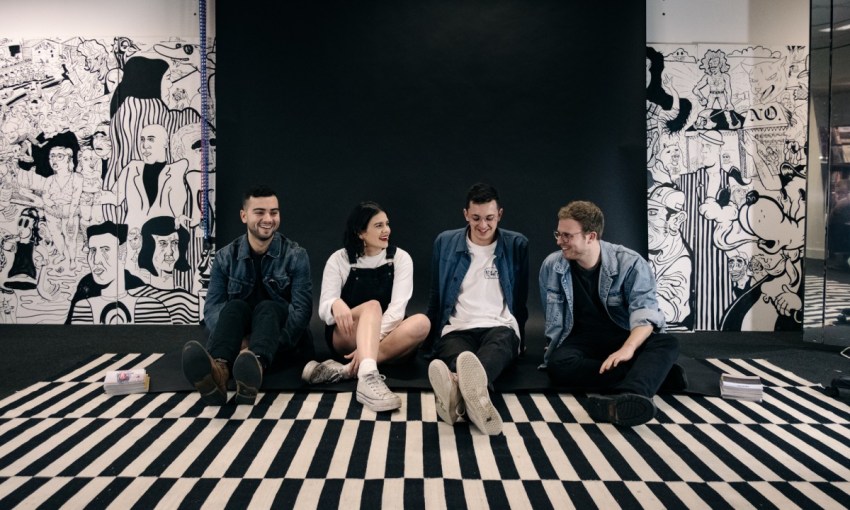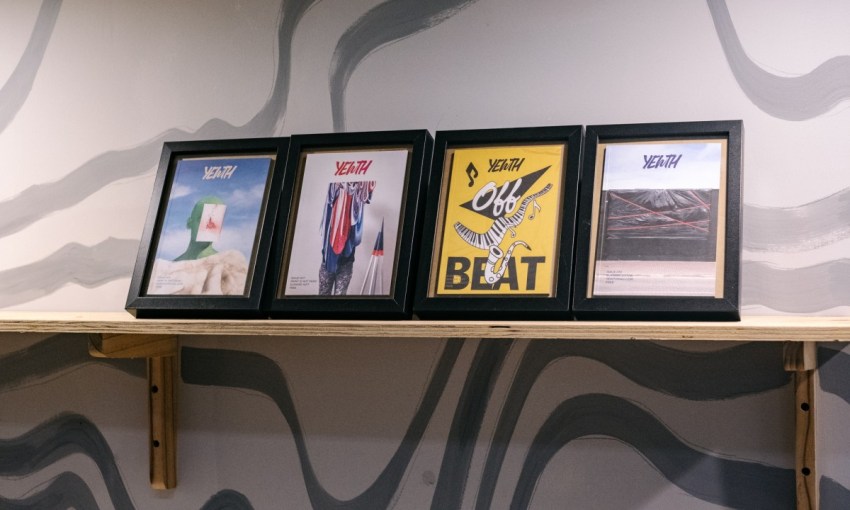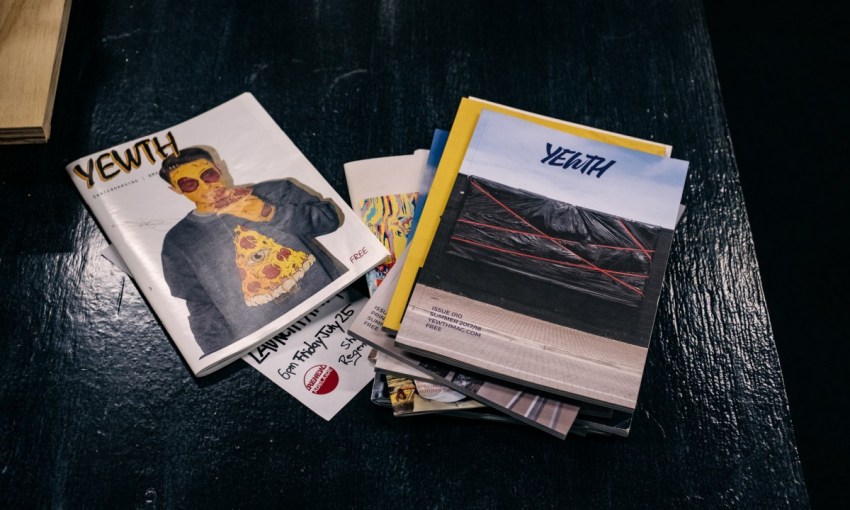The gargantuan output of one of this city's true youth media brands has ceased. But we are eternally grateful for the work that was done.
Live fast, tire young. Leave a beautiful publication behind.
Pushing the green button to the right of a sliding door on Flinders Street, CityMag steps out of the Yewth office and into a chill that is both real and metaphorical.
Yewth – a print and digital media business started by Caleb Sweeting immediately after graduating high school – has, after four years, called it a day.
CityMag has just spent the last hour speaking with the four founders/owners/designers/filmmakers/artists/entrepreneurs/party-throwers/writers of Yewth and the walk back to our own office on Hindley Street is sombre. Along the way we walk (accidentally) past The Advertiser on Waymouth Street – where another round of redundancies looms grey like the clouds above us.
“It’s not print,” says Lewis Brideson of Yewth emphatically.
Lewis has been busy all day answering questions from friends, from readers, and from digital stickybeaks who reacted to the group’s video announcement on social media.
“A lot of people have been trying to paint this as a print thing, saying things like, ‘okay, print’s expensive but the website can keep going,'” says Lewis. “But it’s got very little to do with print bills. It’s the whole of media.”
Yewth made a clarion call about print not being dead when they launched four years ago.
By edition two, founder of Yewth Caleb Sweeting had partnered with Dave Court – the artist and entrepreneur behind Regent Arcade retail spot Created Range (to give you a clue about how bright these kids are, Created Range is an anagram of Regent Arcade). By edition five Caleb and Dave had merged with local music video blog (vlog for the uninitiated) One and Three‘s Courtney Duka and filmmaker Lewis Brideson.
From an idea born in high school at the skate park in Osborne, to launch, to a partnership and then a merger – this business wasn’t some anachronism, a retro throwback to indie publishing heydays but a serious, evolving and increasingly digital media brand.
“I started One and Three blog because I was sick of people complaining there was nothing to do in Adelaide, there’s no music scene, there’s nothing going on,” says Courtney.
“We built a media business that was agile,” says Caleb. “We had to keep changing things because we had to pay the bills, we had to innovate I guess and I think we’re all really proud of those instances where we created new and interesting ways for our brand to collaborate with businesses and make money and keep our integrity.”
“These boards,” says Dave Court pointing at the black and white illustrated timber panels they’re sitting in front of for our interview. “These boards are from Laneway Festival. Myself and Jake One [Holmes], Jake Two [Bresanello] and Jay Krause, Harriet McKay, Henry Stentiford, Daria HK and Hari Koutlakis painted this live at the festival. We weren’t just there to take photos and make a film and report on Laneway – we did those things too – but we also were able to make Laneway in Adelaide different to Laneway anywhere else in Australia.”
So yes, Yewth isn’t closing because print is expensive – it’s closing because media has come to be defined by the brands, the platforms, the companies who actually don’t make any media.
“I started One and Three blog before Facebook Video,” says Courtney.
For the rest of us – who unthinkingly upload a live recording of us thanking the bus driver when we alight the bus – it’s difficult to understand how this tiny shift in access for the general public, coupled with film quality on phones, can have a big impact on how saleable a video blog is to a potential advertiser.
The open access and free self-expression online has created a wave of homogenous global content, where only the best and sometimes luckiest examples of locally-produced media can cut through.
For Caleb, Dave, Courtney, and Lewis the drive to build a community, promote young artists, musicians, photographers and create a stepping stone for creatives generally from the realm of social media to paid-professional was a huge part of why Yewth existed.
But’s it’s ultimately heartbreaking to see those you’ve worked with go on to build careers while you have to work second and third jobs to pay rent on your room in a sharehouse.
“I guess it’s a coming of age story,” says Caleb. “We need to do other things, to earn money and to have stability.”
“To get some sleep,” says Courtney.
However, we suggest that they would feel completely revitalised if they were paid – even minimum wage – to run Yewth.
“Oh hell yeah!”
We can’t really attribute that quote – it was somewhat of a consensus.
Caleb didn’t know it when he raced out after graduating Year 12 and started a magazine.
Dave, Courtney and Lewis didn’t know it when they joined forces.
These four young people started something in order to give Adelaide’s creative youth a voice, a platform, something local that didn’t make them cringe, that built connections and pathways for contributors, gave people a sense of belonging and identity, and even launched careers and helped University students complete degrees. When they did that, they didn’t realise they would end up creating a cultural artefact as a result.
“Cultural artefact?” says Lewis. “I like that.”
Yewth is more than print and digital and media. Yewth is friendship and hard work and energy and growth and development.
Yewth is forever – it’s just a shame that one day, we’re forced to grow up and that it happens a lot quicker in the world of media than it should.






